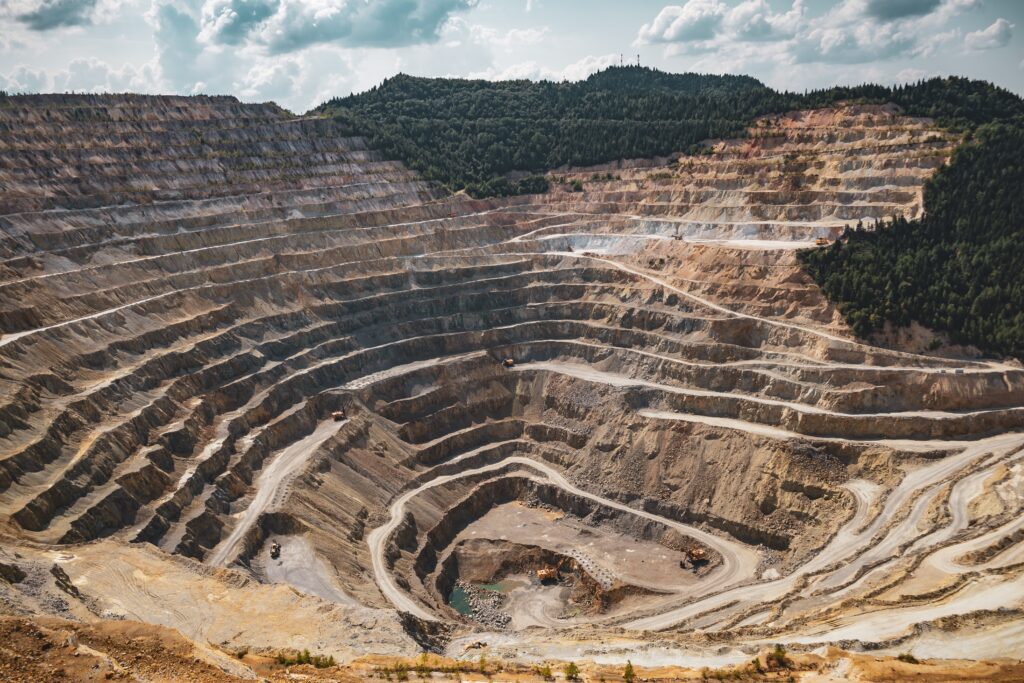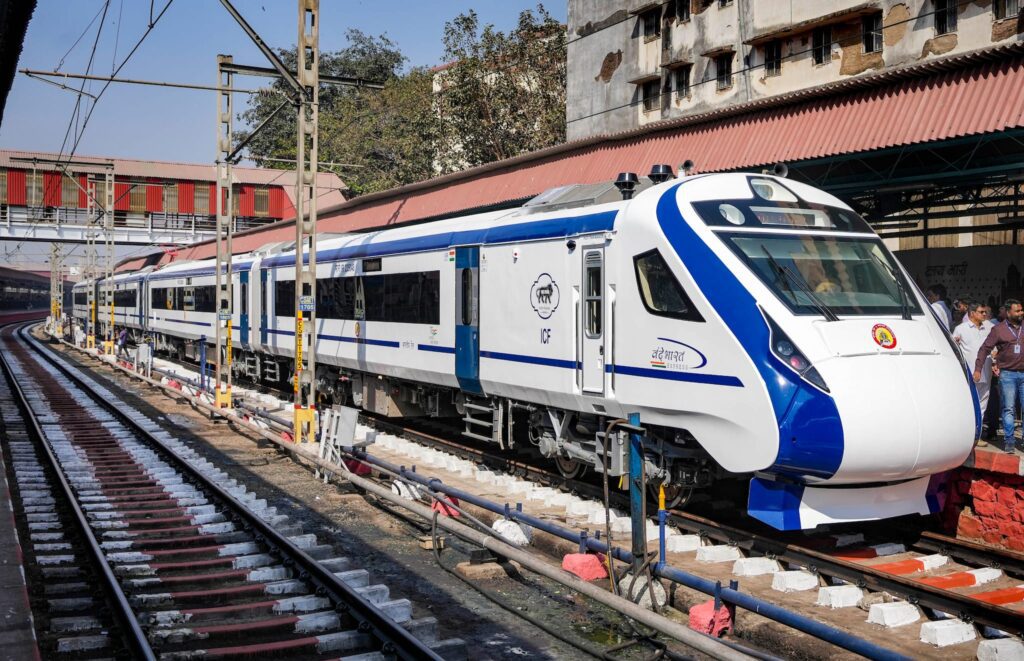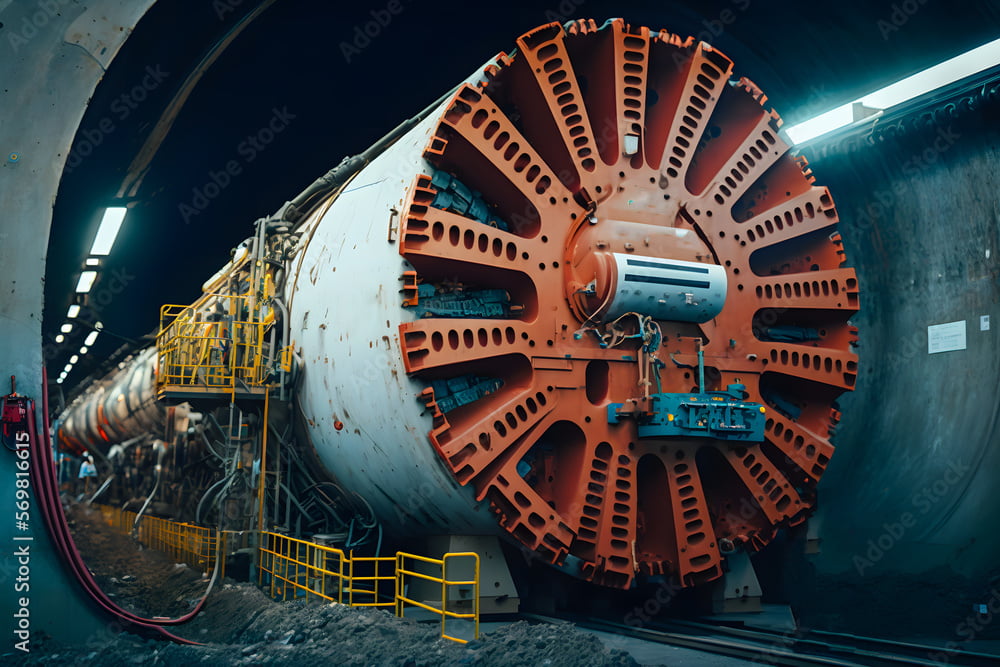
Mining engineering is a specialized branch of engineering that revolves around the Exploration, Extraction, Processing,and Management of valuable minerals, metals, and other geological resources from the Earth’s crust. These resources can range from Coal, Metallic and Non-metallic minerals, Petroleum, to rare earth elements. They serve as the backbone of industries around the world, from manufacturing to technology and energy production.
The extraction of valuable minerals and resources from the Earth has played a pivotal role in shaping human civilization. Behind this essential process stands the profession of mining engineering, a field dedicated to ensuring the responsible extraction of Earth’s treasures while safeguarding the environment and the well-being of communities. In this blog post, we will embark on a journey to uncover the world of mining engineering, its significance and mining methods.
Table of Contents
Mining Engineering Courses includes:
The syllabus for mining engineering programs may vary slightly from one university or institution to another. However, the core topics and subjects covered are generally similar. Below is a typical outline of what a mining engineering syllabus might include:
- Introduction to Mining Engineering:
- Overview of mining engineering and its importance in the industry and society.
- Historical development and milestones in mining.
- Mine Development and Planning:
- Exploration techniques and geological surveys.
- Reserve estimation and resource evaluation.
- Mine planning and design.
- Mine Development.
- Rock Mechanics and Ground Control:
- Principles of rock mechanics and its application in mining.
- Rock properties, stress analysis, and stability of underground and open-pit excavations.
- Ground support systems and ground control measures.
- Surface Mining Methods:
- Introduction to surface mining operations.
- Open-pit mining methods and design considerations.
- Quarrying and strip mining techniques.
- Underground Mining Methods:
- Introduction to underground mining operations.
- Room and pillar mining, longwall mining, and sublevel caving.
- Stope design and underground support systems.
- Mine Ventilation and Environment:
- Ventilation systems and air quality in underground mines.
- Environmental considerations in mining operations.
- Water management and mine dewatering.
- Mineral Processing:
- Principles of mineral processing and ore beneficiation.
- Froth flotation, gravity separation, and magnetic separation.
- Mine Economics and Feasibility:
- Financial analysis and economic evaluation of mining projects.
- Mine feasibility studies and project evaluation.
- Mine Safety and Regulations:
- Occupational health and safety in mining.
- Mining regulations and compliance.
- Mine Management and Operations:
- Mine organization and management.
- Equipment selection and maintenance.
- Mine automation and use of advanced technologies.
- Environmental Impact and Sustainable Mining:
- Environmental impact assessment and management.
- Sustainable mining practices and reclamation.
- Social and community considerations in mining projects.
- Special Topics in Mining Engineering:
- Emerging trends and innovations in mining technology.
- Case studies of successful mining projects.
- Challenges and opportunities in the mining industry.
The above outline provides a comprehensive overview of the typical subjects covered in a mining engineering syllabus. Depending on the university or institution, there might be additional elective courses or research projects that allow students to specialize in specific areas of interest within mining engineering.
Career Opportunities:
Mining engineers have a wide range of job opportunities and roles across various industries related to mining, mineral processing, environmental management, and sustainable resource development. Some of the key types of jobs and roles for mining engineers include:
- Mining Industry
- Consulting
- Government and Regulatory Agencies
- Mineral Processing and Metallurgy
- Environmental Management
- International Opportunities
Top Mining Companies in World by revenue:
- Glencore
- BHP
- Rio Tinto
- China Shenhua Energy
- Vale
- Anglo American plc
- Zijin Mining
- China Coal Energy
- Coal India
- Yanzhou Coal Mining
Top Mining Engineer recruiters in India
Government Bodies:
- Coal india limited
- MOIL
- NMDC
- The Indian Bureau of Mines
- Geological Survey of India
- Neyvelli Lignite Corp
- NALCO
- HCL
Private Bodies:
- Vedanta
- TATA mining
- AAC
- Relient
- MP Birla
The Importance of Mining Engineering
Mining engineering is not just about digging up minerals; it is an indispensable industry that fuels global economies and contributes significantly to the standard of living. Virtually every aspect of our modern lives relies on materials extracted through mining, from construction materials for infrastructure development to metals used in electronic devices and renewable energy technologies.
Mining Methods and Techniques
Mining engineers employ various methods to access and extract minerals from the Earth, tailored to the geological conditions and the type of resource being sought. These methods include:
a. Open-Pit Mining: Ideal for shallow deposits, open-pit mining involves removing large quantities of soil and rock to expose the mineral deposit for extraction.
b. Underground Mining: Suitable for deeper deposits, underground mining involves creating tunnels and shafts to reach the minerals, ensuring safety and minimizing surface disruption.
c. Placer Mining: Utilized for alluvial deposits, placer mining involves the separation of minerals from sediment using gravity and water. d. Solution Mining: Commonly used for salt and potash deposits, solution mining involves injecting solvents to dissolve minerals, which are then brought to the surface.
What is the salary of a Mining Engineer in India?
The average CTC of a mining engineer in PSUs vary from 10 to 14 LPA on the post of GET. And in private bodies, it can vary from 4 to 16 LPA depending upon the company and the role on which he/she is hired.



Excellent.
Nice information
Pingback: Unveiling the Marvels of Tunnel Boring Machines (TBM): What Is TBM and How Does It Work? - MiningDuniya
Pingback: Shaft Sinking in Mining || Methods and Factors affecting - MiningDuniya
I like that you mentioned the numerous techniques that mining engineers use to access and extract minerals from the earth. This included underground mining, which included digging tunnels and shafts, as you indicated. I made the decision to find out more about my uncle’s work because he has experience in the mining sector. I’m glad I found your blog; many thanks for posting!
Thank you, it means a lot to me. Please share and subscribe the page to get notifications on new posts.
This blog highlights crucial aspects of mine management. The emphasis on sustainable practices and safety compliance is very commendable.
Thank you!